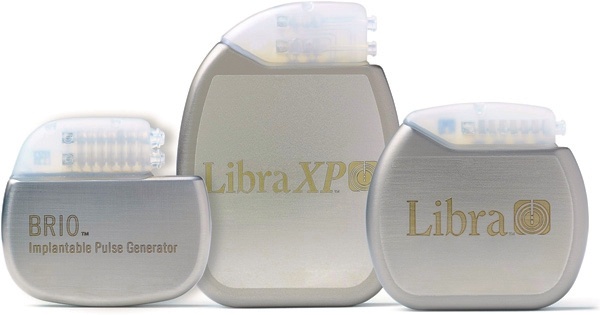
St. Jude Medical announced CE Mark approval of its Brio™, Libra™ and LibraXP™ deep brain stimulation (DBS) systems for managing the symptoms of intractable primary and secondary dystonia, a neurological movement disorder that causes a person’s muscles to contract and involuntarily spasm, reducing the ability to control movement. This approval represents the first by a regulatory agency for the use of deep brain stimulation to manage both primary and secondary dystonia.
According to the press release:
“Dystonia strikes people of all ages including children and young adults, often leaving them disabled and sometimes wheelchair-bound,” said Elena Moro, Ph.D., professor of neurology at the University Hospital Center of Grenoble, France. “For patients who do not respond to medications, deep brain stimulation therapy may alleviate symptoms such as repetitive, twisting movements, allowing them to improve their independence and overall quality of life.”
DBS therapy for dystonia involves the delivery of mild electrical pulses to a specific target in the brain. Stimulation is delivered to one of two regions, the subthalamic nucleus (STN) or the globus pallidus interna (GPi), areas of the brain involved with controlling movement. Irregular nerve signals responsible for some of the disabling symptoms are stimulated by DBS therapy, ultimately helping the patient improve movement.
“This CE Mark is the first approval by a regulatory agency for the use of deep brain stimulation therapy to manage the symptoms of both primary and secondary dystonia, broadening the treatment options for patients in Europe whose lives are impacted by this disabling disease,” said Eric S. Fain, M.D., president of the St. Jude Medical Implantable Electronic Systems Division. “This approval represents a significant milestone for St. Jude Medical as we continue to develop therapies to treat a broad range of neurological conditions.”
Dystonia is an incurable neurological movement disorder thought to affect more than 500,000 people across Europe. Primary dystonia is defined as an illness in which the origin of the disease is unknown, and may be genetically inherited. Secondary dystonia is considered environmental or symptomatic as it often results from another condition such as a stroke, or as a response to certain medications such as dopamine blocking drugs used to treat psychiatric disorders. Onset of secondary dystonia can also result from an injury or trauma to the brain. “
